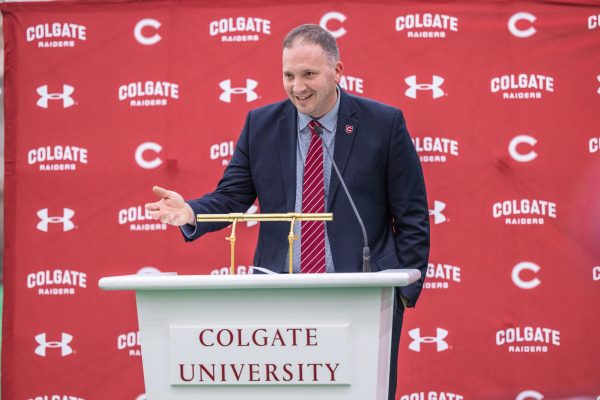Unpopular Opinion: The Case Against the Grind
Most people who know me know that I do not sleep, at least not at night. In fact, the entirety of this article was written during those early hours in which one is unable to correctly discern whether it is yet appropriate to say, “good morning.” I can often be found stumbling through campus bleary eyed or snoozing during lectures, neither of which I am particularly proud of but would be lying if I said they had not become part of my brand. I pull all-nighters almost daily, have at some points been 95 percent caffeine and get most of my sleep within the hour long intervals between my morning and afternoon classes.
This practice of eternal fatigue did not suddenly manifest as I entered my college years but rather has been a characteristic which has plagued me since late middle school, a long enough period that I often joke that I have not had a good night’s sleep since I exited the womb. This joke kills with my peers but consistently falls flat with my deans and professors. Generational gap perhaps?
I know I am not alone in this exhaustion culture: one that favors the grind over self care, that rewards what can only be described as sadism and mocks healthy lifestyle choices. The stench of burnout practices is unmistakable and inescapable across campus, from the students whose backpacks include a change of clothes as they make plans to spend 24 hours in Case-Geyer’s flex room to the delirious junior discreetly popping their second adderall in the carrel beside you. Beyond more obvious visual cues, burnout culture has become embedded in our everyday speech, eliminating mentions of the weather from small talk and replacing them with destructive competitions of unwellness.
Normalized and condoned, performative exhaustion is a concept that permeates not only Colgate but several other prestigious liberal arts universities just like it. In recent years, several studies have emerged on burnout and overwork culture and the ways in which higher education institutions encourage and expect such practices, perpetuating narratives that success is unattainable without pain. From such studies, it was found that 55 percent of college students reported their biggest stressor to be academic in nature and six in 10 college students reported feeling so stressed they could not complete their work. As students are encouraged to take the most challenging courses, respect the deadlines of those courses and balance their study, work and personal life, while often juggling external factors outside of their control, the risk for burnout increases. Unfortunately and ironically, despite exhaustion culture’s unwitting and unrelenting promotion by society, its practices are linked to reduced academic performance, the very thing students are trying to avoid in the first place.
Of course, my gripe is not against hard work.
More than just statistics, this phenomenon has very real consequences on individual students as well as the larger Colgate community. The pressures to perform can often manifest into serious health conditions if left unacknowledged, including but not limited to insomnia, depression and anxiety, all of which can add to the cycle of emotional and academic exhaustion. With the added layers of stigma surrounding mental illness and mental health self-care as well as the exaltation of hustle culture, it is not a vast leap to make that many Colgate students may be suffering in fatigued silence.
These toxic narratives of burnout become more complicated and harder to stomach as one begins to unpack and address the inherent inequalities which plague institutions like Colgate and make different students disproportionately at risk for its consequences. Beyond the high academic demands made at Colgate, issues of financial pressures and imposter syndrome also add drops to the overflowing glass of expectations which many marginalized and low-income students must contend with at an elite, private university.
Therefore, as one struggles to pay tuition and other unexpected fees that come with attending university or grapples with inadequacy within inequitable classrooms, the tendency to equate one’s level of ‘hard work’ to their intrinsic value as human beings and ability to be accepted by their professors and peers is overwhelming. Born of these complicated aspects of college life as an “untraditional” Colgate student is an unwilling buy in to a self-defeating lifestyle of overwork.
So, the next time a friend inundates you with tragic tales of self-inflicted woe after a sleepless night of cramming, resist the urge to respond with a miserable “same” and instead interrogate the systems which perpetuate such an unhealthy lifestyle. Urge them to take a break, join you for a walk on the quad and perhaps remind them that the culture of overwork is neither sustainable nor aspirational.
Amarachi Iheanyichukwu is a senior from New York City concentrating in political science with a minor in creative writing. She’s previously served as...










